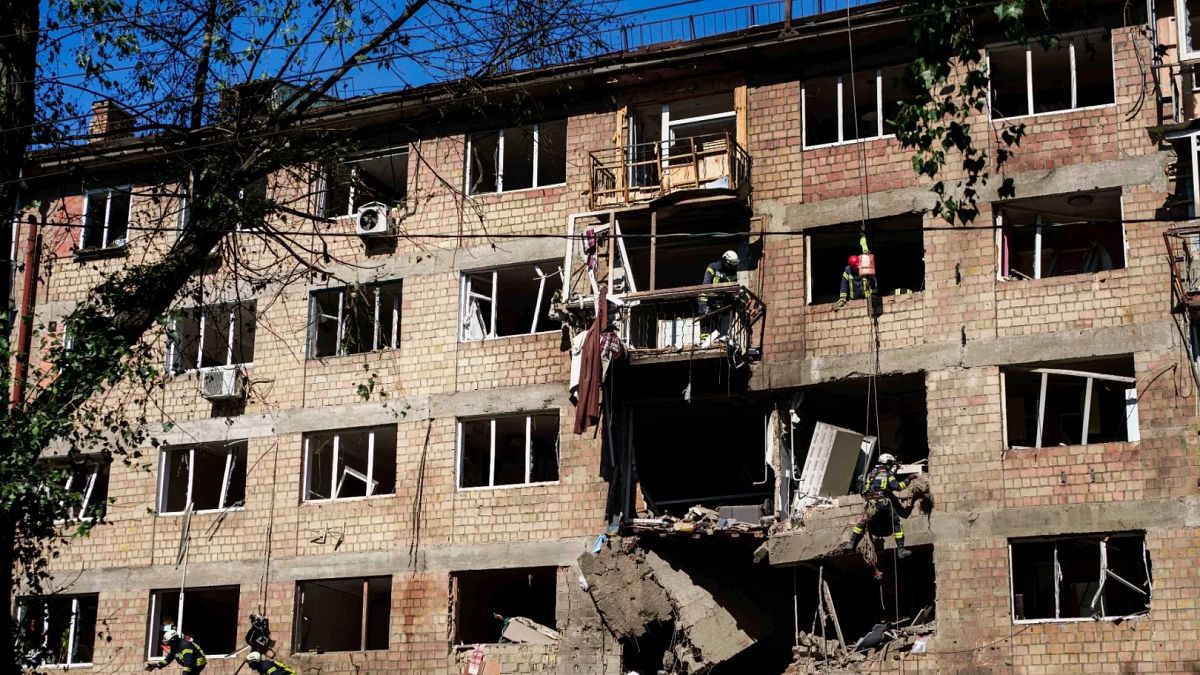

In recent developments, the enduring conflict in Ukraine and escalating tensions in Pakistan have taken center-stage. These events highlight the ongoing challenges faced by these nations, as they navigate through tense situations with continued resilience and determination.
In Ukraine, the atmosphere has become increasingly intense as the nation reports a strategic military success. Ukrainian forces claim to have successfully struck a Russian airbase. This action comes as part of a broader defense effort in response to heightened Russian military activities. Russia has intensified its bombing campaigns within Ukrainian territories, putting further strain on the nation. Despite the ongoing tensions, Ukrainian President Volodymyr Zelenskyy had a “very important and productive” conversation with US President Donald Trump, signifying strong international support and potentially paving the way for more robust assistance. The collaboration between the United States and Ukraine underscores the global commitment to peace and stability in the region.
In parallel, intelligence reports from Dutch and German agencies have revealed troubling activities by Russian forces. There are increasing allegations of the use of banned chemical weapons, including substances like chloropicrin, which compels soldiers to move into more vulnerable positions. This revelation has prompted calls for enhanced sanctions and fortified support for Ukraine, as the international community seeks to address these violations of international law with measured and firm actions.
Meanwhile, in Pakistan, a separate but equally complex scenario is unfolding. Pakistani troops have successfully intercepted and neutralized thirty militants attempting to enter the country from Afghanistan. This incident is symptomatic of a broader resurgence of militant activity, much of which has been attributed to the Pakistani Taliban. While this group operates independently of the Afghan Taliban, there remains a close alliance between the two, further complicating regional dynamics. The successful military operation serves as both a deterrent and a testament to Pakistan’s commitment to maintaining national security and regional stability.
This recent surge in militant activity adds to the ongoing security challenges faced by Pakistan. The country’s strategy in responding to these threats involves not only military measures but also efforts to address underlying sociopolitical issues that fuel militancy. This incident highlights the importance of collaborative regional efforts to combat terrorism and promote peace.
The unfolding situations in these distinct yet interconnected regions highlight the intricate balance between defense and diplomacy. In Ukraine, the continued dialogue with international allies offers hope for increased support and a comprehensive approach to peacebuilding. The strategic military engagements and international dialogues exemplify a broader effort to address the multifaceted threats to national and regional stability.
In Pakistan’s scenario, the adept handling of security threats is crucial, as it underscores the nation’s resilience in the face of external challenges. By actively engaging in both defensive and diplomatic measures, Pakistan aims to forge a path towards enduring peace and security.
Amidst these developments, the international community remains watchful and engaged, looking to navigate these complexities through a balance of firm action and supportive diplomacy. The ongoing collaboration between nations and intelligence sharing plays a pivotal role in ensuring a collective response to these emerging threats, reinforcing global efforts towards peace.
As these events evolve, the overarching focus remains on fostering a stable and secure environment. The resilience and adaptability of nations like Ukraine and Pakistan emphasize their commitment to overcoming adversities by leveraging strategic alliances and maintaining a dialogue-driven approach to conflict resolution. These efforts are crucial in promoting a peaceful and secure global landscape, enabling nations to thrive amidst challenging circumstances.
Source: {link}
